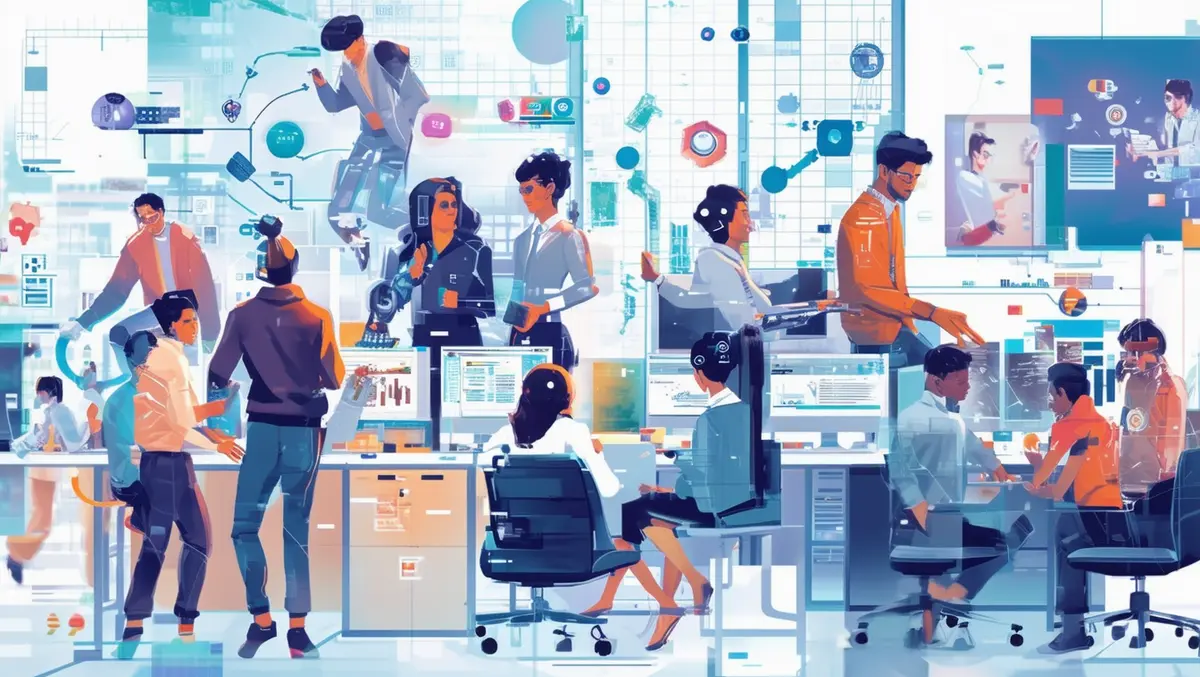
Chaos, trust issues and AI gaps impact employee wellbeing in AU
A comprehensive study of employee experience trends in Australia for 2025, conducted by Qualtrics, has highlighted several key areas affecting the modern workplace, including workplace chaos, employee trust, and the integration of AI.
The report surveyed more than 2,000 employees in Australia as part of a broader global study involving 35,000 respondents across 23 countries. One of the major findings is the chaotic nature of many modern workplaces, which has been marked by a disparity between business priorities and employee needs. This misalignment is said to be affecting employee engagement and wellbeing adversely, with many workers feeling increased pressure leading to higher stress and disengagement.
"Over the past few years workers in Australia and across the globe have been dealing with relentless change. It's no surprise many have reached their breaking point," said Dr. Cecelia Herbert, Workplace Behavioural Scientist at the Qualtrics XM Institute. She emphasised the need for employers to focus on how and why work is done, which she argues are the most important factors for sustainable productivity and positive outcomes.
Another key topic addressed by the report is the stereotype of younger workers. Contrary to common belief, the study found that young employees are often the most engaged, motivated, and optimistic among the workforce. However, their intent to remain with a company long-term is notably low, with only 39% planning to stay for an extended period compared to 76% of those aged 25 and older.
Dr. Herbert commented, "It's time to end the scapegoating of young employees for workplace woes. These mindsets are crushing the optimism and fresh thinking younger workers bring to the workplace."
First and last impressions made significant differences in employee experiences. The report found that poor candidate entry experiences result in lower engagement and a reduced intent to stay with the organisation. Similarly, employees often reported unsatisfactory experiences upon exiting, impacting their view of the organisation negatively.
"Every organisation's brand and reputation is heavily influenced by the stories people tell about applying for a job and what it was like working there," Dr. Herbert noted, pointing out the strategic importance of polishing these aspects.
Concerning trends in management styles were also addressed, particularly the short-term focus at the expense of trust in leadership. Australian employees rate their trust in senior leaders below the global average, with only 47% believing that their leaders would prioritise wellbeing over immediate profit. "The relationship between employees and their leaders is getting more and more tense," Dr. Herbert said, underlining the need for cultivating trust to improve employee experience.
The study also sheds light on the adoption of AI in workplaces, revealing a gap between employee readiness to embrace AI and company support for AI enablement. Only 35% of employees report receiving AI tools and training, while many are independently using AI resources, highlighting a potential operational risk.
Dr. Herbert stated, "It is not employee resistance holding back workplace progress with AI. The real inertia stems from the lack of the tools, training, and guidance employees need."
The report provides a detailed analysis of these trends, offering businesses insights into areas for improvement to better engage their workforce and enhance productivity in the coming years.


